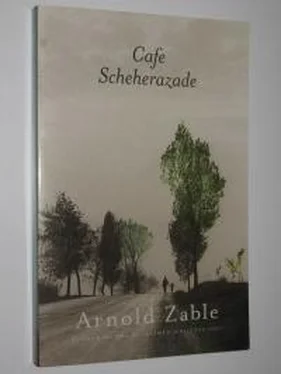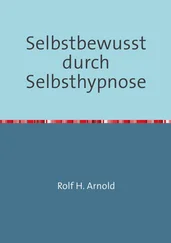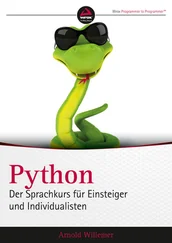Arnold Zable - Cafe Scheherazade
Здесь есть возможность читать онлайн «Arnold Zable - Cafe Scheherazade» весь текст электронной книги совершенно бесплатно (целиком полную версию без сокращений). В некоторых случаях можно слушать аудио, скачать через торрент в формате fb2 и присутствует краткое содержание. Город: Melbourne, Год выпуска: 2001, Издательство: Text Publishing Company, Жанр: Проза, на английском языке. Описание произведения, (предисловие) а так же отзывы посетителей доступны на портале библиотеки ЛибКат.
- Название:Cafe Scheherazade
- Автор:
- Издательство:Text Publishing Company
- Жанр:
- Год:2001
- Город:Melbourne
- ISBN:нет данных
- Рейтинг книги:4 / 5. Голосов: 1
-
Избранное:Добавить в избранное
- Отзывы:
-
Ваша оценка:
- 80
- 1
- 2
- 3
- 4
- 5
Cafe Scheherazade: краткое содержание, описание и аннотация
Предлагаем к чтению аннотацию, описание, краткое содержание или предисловие (зависит от того, что написал сам автор книги «Cafe Scheherazade»). Если вы не нашли необходимую информацию о книге — напишите в комментариях, мы постараемся отыскать её.
Cafe Scheherazade — читать онлайн бесплатно полную книгу (весь текст) целиком
Ниже представлен текст книги, разбитый по страницам. Система сохранения места последней прочитанной страницы, позволяет с удобством читать онлайн бесплатно книгу «Cafe Scheherazade», без необходимости каждый раз заново искать на чём Вы остановились. Поставьте закладку, и сможете в любой момент перейти на страницу, на которой закончили чтение.
Интервал:
Закладка:
Taiga forests swayed in the distance; fields of snow extended to the horizon; and in the foreground stood the wooden huts and dormitories of a pasholik, a desolate labour camp.
Masha recalls the welcoming speech of the camp commander. And his final words: "You will get used to it. And if you don't, you will slowly die, like dogs."
Hundreds did die like dogs, from disease and despair, from hunger and unbearable cold, or from the sheer vastness, from the blinding whiteness of snow. Prisoners would deliberately walk out into the darkness, and vanish. It was as if they had never existed. Or they would be brought back, days later, frozen to death, their rigid corpses a reminder to the living that they were ciphers within a void.
The Frydmans were among those who did get used to it. 51
Josef was assigned to a work brigade that felled trees and hauled timber. He disappeared into the forests with his fellow workers in the pre-dawn gloom, and returned exhausted, long after dark.
By day, Masha worked in the communal kitchen and, late at night, as the weary camp inmates slept, she would steal out with little
Lonka, in search of potatoes. They dug them out with their gloved hands, from beneath the snow. As they worked they could hear the howling of wolves.
A settlement in Siberia. It was harsh. It was strangely beautiful. It was a wilderness. The prisoners inhaled ice. They were infested with lice. On fatigue-laced summer evenings, the shadows played over barren steppes. A Polish countess taught the young girls how to dance. She taught Masha the polka and czardas.
She sewed dresses for her students and they performed the dances in a pasholik concert.
Masha enrolled in the village school. She trudged seven kilometres through snow every morning and afternoon. She walked in a world of silence, broken by sudden gusts of wind. She trekked through a world of white upon white. A pasholik in
Siberia. The coming of age of a young girl. It was harsh. It was strangely beautiful. It was a wilderness.
"About this period alone, you could write a book," says Masha.
And, not for the first time, I am overcome by an uneasy feeling that I am stranded in the snows of Siberia; trapped at a table in the back room of a cafe called Scheherazade.
52
In late September 1941, after almost two years of incarceration, the inmates were assembled by the pasholik commander to be informed they were now free. Two months earlier, a deal had been brokered in London between the Soviets and the Polish governmentin-exile. The Red empire was now at war with the Third Reich.
Polish citizens on the run in Russia were now regarded as allies rather than slaves.
Yet Masha does not recall a sense of celebration. She cannot recall a moment of departure, a sense of ending. The journey was far from over. All that had changed was the direction.
Move south, the freed prisoners reasoned. Move south, towards the sun, away from the northern winds. They gathered on railway platforms, sat in crowded waiting rooms. They slept on wooden benches. They dozed on sackcloth and stone floors. And waited.
Endlessly they waited for the next train south. This was the thought that obsessed them: to reach the sun.
And when, at last, a place was secured, in a cattle wagon, the
Frydmans were one family among thousands. They acquired the skill of sleeping on their feet. They learnt to leap out of slowing carriages by provincial stations to dash for water. They squatted on train tracks, or stood in dark corners to relieve themselves.
They mastered the delicate art of defecating from the sides of moving wagons. And they clung to their simple goal: to move south. To Tashkent, "the city of bread". To Alma-Ata, the "mother of apples". Perhaps to Bukhara, "the city of mosques". To the
Asiatic republics. To the sunlit extremities of an empire.
At long last they began to feel the changing winds, the scent
53 of breezes which hinted at weightless days. At last they could fling off the burden of heavy clothes. The breezes flowed through the wagon doors and allowed them a brief respite.
The Frydmans alighted in Merke, a hamlet in southern Kazakhstan.
There was work here, they had heard on the refugee grapevine. On the outskirts of the hamlet stood a sugar refinery and an enclave of factories. The men-folk had been drafted to fight in distant wars. Newcomers were welcomed through the factory doors.
Merke alternately sweltered and froze. Through its streets trudged the dispossessed: Poles and Uzbeks, Chechens and Kazakhs, Gypsies and Jews, in search of a home. When at last they secured one, they lived ten or more to a room.
The houses were of mudbrick, the alleys paved with clay. Summer winds whipped the fields into dust. Winter winds capped the nearby mountains with ice. The range stretched towards the
Chinese border. Bandits roamed the forbidding terrain. They raided farms and village homes. They battled each other for limited spoils.
Masha acquired another language: Kazakh. She trekked to village markets to sell the shoes her father had stolen from his place of work, and dresses her mother had sewn from recycled bed sheets.
The sheets were dyed with the bright colours sought after by
Kazakh women. Masha became an adept salesgirl. She learnt to haggle, to extract the highest price. At night she crept out with
Lonka, her seasoned partner in crime, to steal beet from the sugar mill.
54
Masha's mother converted the beet into soup. When the family had eaten their fill, she would carry the soup to the boys of a Vilna yeshiva. An entire school of biblical scholars had fled to Merke.
She fed the students and helped sustain them in their stubborn quest for redemption. Surely, the Messiah was finally on the way, argued the scholars. Their people had become wanderers yet again.
The yeshiva boys had resurrected their gilded arks and Torah scrolls in the mudbrick shelters of Merke, where they clung to their one constant, their one true home: their trusted scriptures and obstinate love of a tribal God.
On summer nights Masha slept outside, under an arcing dome teeming with stars. On winter evenings she read by candlelight.
Her life orbited around the village school, the epicentre of her new life. She fell in love with the Russian classics. She fed her voracious appetite for knowledge. She read so long and so late that in the mornings her father scolded her for wasting precious fuel.
For three full years the Frydmans lived in Merke; until a
November night in 1944, when Masha's father failed to return home. He arrived next morning, badly bruised and ashen-faced.
"Pack immediately," he ordered. Only when they were well on their way did he dare explain. He had been interrogated and beaten by the secret police. They had demanded he become a spy. They had left him with the devil's choice: either become an informer and pry into the lives of fellow refugees, or be transported back to the labour camps of the north.
A horse-drawn cart conveyed the family out of Merke. They
55 travelled within the shadows of mountains, under cover of night.
They journeyed more than one hundred kilometres west, to
Dzhambul: a city of mosques and winding streets, of domes and ragged markets, of monotonous days punctuated by the muezzin's sombre call, and nights permeated by uncertainty, the fear of a sudden knocking on the door.
Masha recalls little of her Dzhambul sojourn, except for the
Gypsy fortune teller who beckoned to her from a lane. "Your hands are so delicate," she murmured. "So white. A girl with such white hands is destined to die young."
And she recalls a cattle train, standing on the railway tracks.
The train was crowded with Chechen refugees. They had been uprooted and deported en masse. The train remained standing on the tracks for days. From its carriages came the sounds of moaning, the cries of old women, and children, begging for water to ease their thirst.
Читать дальшеИнтервал:
Закладка:
Похожие книги на «Cafe Scheherazade»
Представляем Вашему вниманию похожие книги на «Cafe Scheherazade» списком для выбора. Мы отобрали схожую по названию и смыслу литературу в надежде предоставить читателям больше вариантов отыскать новые, интересные, ещё непрочитанные произведения.
Обсуждение, отзывы о книге «Cafe Scheherazade» и просто собственные мнения читателей. Оставьте ваши комментарии, напишите, что Вы думаете о произведении, его смысле или главных героях. Укажите что конкретно понравилось, а что нет, и почему Вы так считаете.












